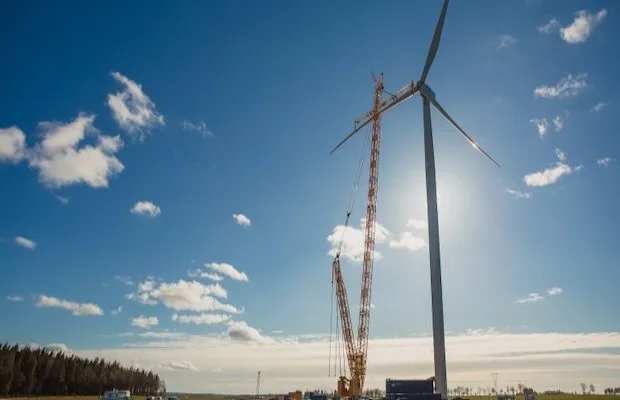EBRD Agrees €50 Mn Financial Guarantee for Renewables in EU Neighbourhood
- EBRD and the EU have agreed on EUR 50 million in financial guarantees aimed at scaling up investment in renewables in the EU Southern Neighbourhood

The European Bank for Reconstruction and Development (EBRD) and the European Union (EU) have agreed on a new EUR 50 million programme of financial guarantees aimed at scaling up investment in renewables in Ukraine and in the EU Southern Neighbourhood with a particular focus on Jordan, Lebanon and Tunisia.
This is the first EBRD guarantee programme to receive funding through the EU External Investment Plan (EIP), an EU initiative launched in 2017 with the aim to attract more investment, especially from businesses and private investors, into countries neighbouring the EU and in Africa.
Under the new programme, the EBRD will provide guarantees to lenders such as local commercial banks, which will allow them to provide financing to projects alongside EBRD loans. The guarantee is expected to help generate total investments of up to EUR 500 million. Through the EIP, to date, the EU has allocated EUR 4.5 billion in public funds to leverage EUR 44 billion in public and private investment for development in countries neighbouring the EU and in Africa. The EBRD will implement the largest volume and number of guarantees under the EIP in the EU Neighbourhood.
The projects under this programme will help unlock countries’ substantial renewable energy potential, promote the development of renewable energy more widely and demonstrate how the private sector can help meet the growing demand for energy. The guarantee is expected to provide 340 MW of additional installed renewable energy capacity. This translates into an extra 970 gigawatt-hours (GWh) per year of electricity production from renewable sources, and a cut in annual greenhouse gas emissions equivalent to 530 kilotons of CO2.
Pierre Heilbronn, EBRD Vice President, Policy and Partnerships, said “we’re delighted to partner with the EU for such an urgent cause as climate action. Our lending combined with the EU’s financial instruments encourages more participation of the private sector in investments which are very much needed to face the global challenges of the future, including a more sustainable development model. This first agreement is only the beginning of our cooperation with the EU through the External Investment Plan in the EU neighbourhood regions.”
Also read

